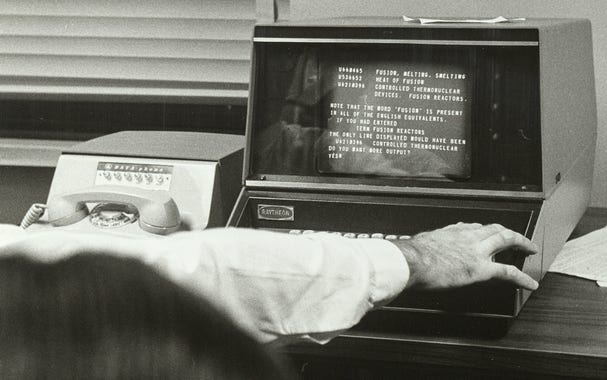The 1970s librarians who revolutionised the challenge of search | Aeon Essays
The SUPARS experimenters also concluded that, while utilising the search terms of others was a promising alternative to subject-based search, it had real limitations. One of the final SUPARS recommendations was to continue developing controlled vocabulary, explaining that ‘a need continues to exist in interactive free-text searching for some form of user vocabulary or synonym control’. They came to this conclusion after seeing how frequently SUPARS participants stumbled into search vocabulary problems such as, in one of their examples, searching for ‘people’ instead of ‘humans’ and returning no results. The participants themselves missed the comprehensiveness of subject headings. In fact, as part of the SUPARS survey, they were asked if they preferred a free-text system or one in which the vocabulary was more controlled: 42 per cent preferred the free-text system, 36 per cent preferred the controlled vocabulary, and 12 per cent wanted both.
...
Culture celebrates people like Licklider for being visionary in a positive vein. But, similarly, Atherton and the SUPARS research team should be celebrated for having seen and then designed for what the future would lose. Expanding our group of established internet visionaries to include people like Atherton, we see a more complex portrait of how different kinds of researchers envisioned the world to come. Where Licklider saw what we would gain from being able to communicate online with anyone in the world, Atherton’s group saw that we would lose expert intermediaries; they designed for this cost.
In 2022 and 2023, as the first generative AI search engines, including academic search engines such as Elicit and Consensus, were introduced to a wide set of users to both great excitement and scepticism, it is similarly useful to analyse what will be lost when researchers come to rely on these tools. When we can simply enter research questions to create instantaneous literature reviews, for example, there will not be merely a great positive leap forward. This new technology will create a lack of grounding and context, even as incredible new discoveries are made – a different loss than what Atherton saw, but similarly both intangible and deeply consequential. Being able to predict these consequences in advance, not mourning them as Luddites but actively considering how to help researchers overcome them, is a lesson we can learn from the SUPARS team.
c/o https://social.coop/@acousticmirror@post.lurk.org/110529508374697759

Add comment